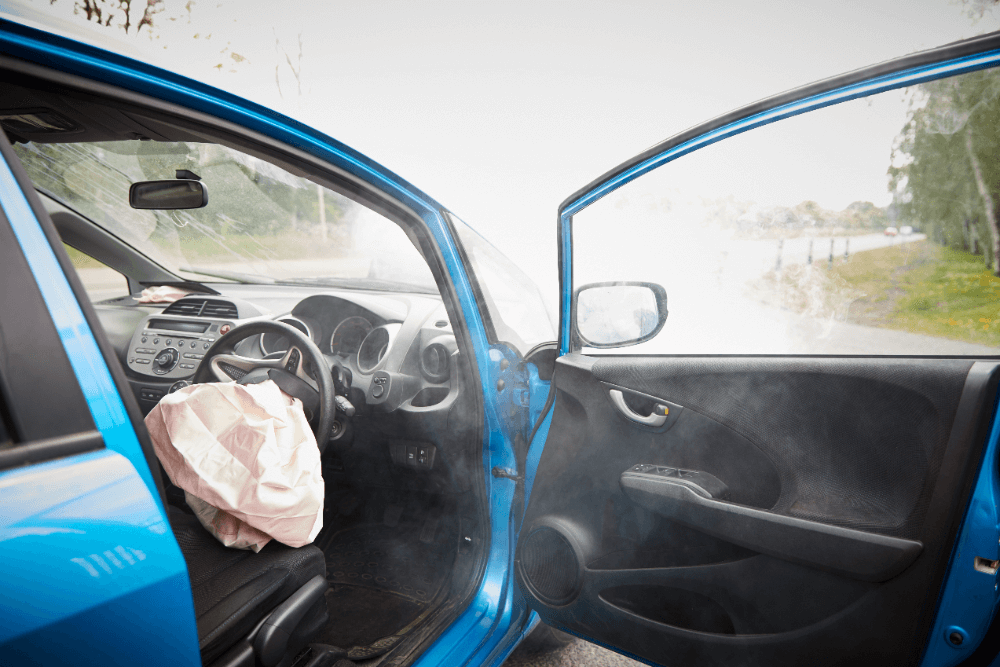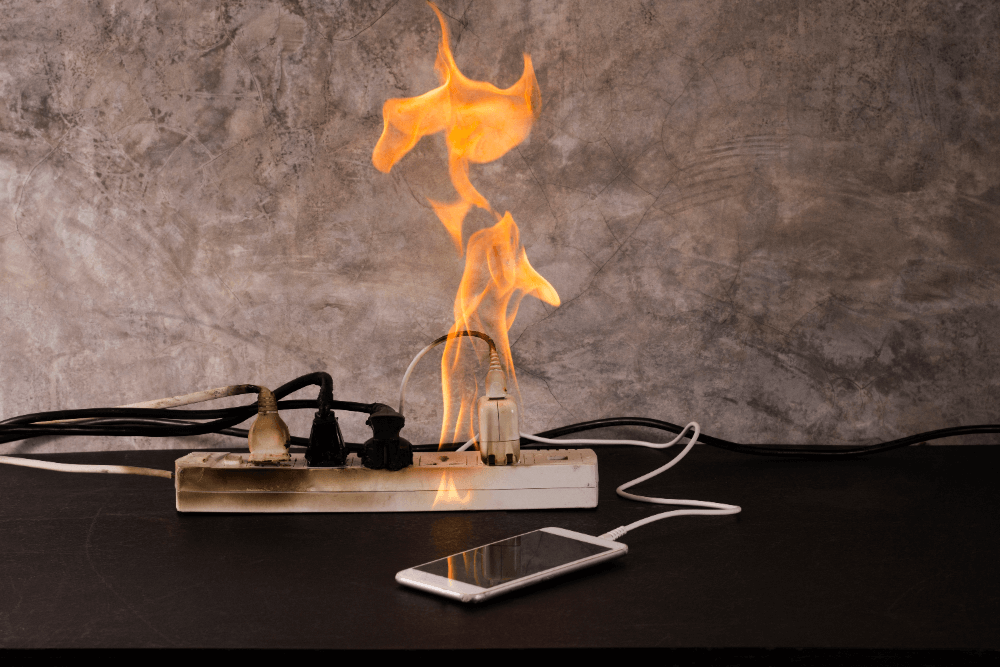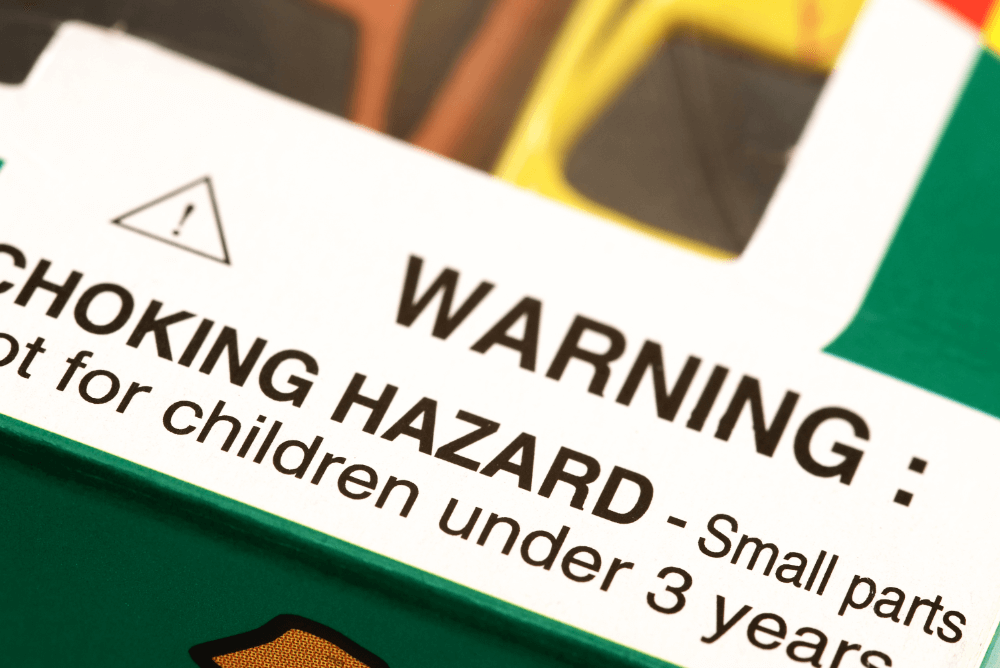What to Do If Your Company Is Being Sued for a Product


In 2020, the average personal injury award in product liability cases was over $7 million. A product liability lawsuit can be catastrophic to small business owners, particularly when the damages total in the millions. If your company is sued for a product, you must proceed cautiously to avoid potential disaster.
Business litigation involving faulty products can also affect your company’s reputation. Learn about product liability, what to do if someone sues your business over a faulty product, and how to protect yourself against legal issues involving potential product liability litigation.
How Do Business Lawsuits Affect a Company?

Business lawsuits, particularly product liability cases, affect service providers and small business owners in severe ways. They have a major financial impact, damage your reputation, and destroy relationships.
Financial Impact
The cost of litigation or settlement can be disastrous, especially for small or midsized businesses. You may lose investor interest or have to divert resources that can have a significant effect on your finances and economic solvency.
The financial impact can hit all of your company’s assets, from bank accounts to real estate and beyond. Lawsuits can also be time-consuming, and the more time they take, the more money you lose. If you have a sole proprietorship, in some cases, your personal assets may even be at risk. If you have a limited liability company (LLC), it can provide some defense, but you are still at risk of losing a great deal.
Lost Reputation
Lost reputation in the event of a lawsuit can be disastrous to your financial performance. Even if you win your case, you will still be subject to the court of public opinion, which can drive away investors and customers. Many companies do not recover from their company’s reputation loss after business litigation.
Relationships
The relationship you cultivate between your business, your customers, and your investors is essential to your success. The negative impacts of a product liability lawsuit can irreparably damage the relationships between your business and any involved parties.
What Is Product Liability?
Product liability occurs when a product causes harm to a consumer. It may be the fault of the designer, the manufacturer, the distributor, or the vendor of the product. For a viable product liability claim, defects must happen to an average consumer using the product within its expected scope of use. In other words, the injured party must show that they were using the product as intended when the injury occurred. A consumer who misuses a product or fails to heed warnings may not recover under a product liability claim.
There is no federal standard defining product liability, so what counts can vary widely from state to state. This is why it is so important to have professional product liability insurance and a knowledgeable West Virginia product liability attorney in your corner who can help to defend your rights.
West Virginia Product Liability Laws
West Virginia product liability laws can be very strict and difficult to defend. They include several important factors.
The first is a concept known as strict liability, which states that an injured person can recover damages for being injured by a product that is not reasonably safe for its intended use, regardless of whether the manufacturer is technically liable for the harm. This means that even if you exercised extreme caution in manufacturing the product and even if other manufacturers produce substantially similar products, you may still be held responsible for the harm.
The next factor in these cases is negligence, which means you had a duty of care toward the customer, that you violated that duty of care in a way that no reasonable person would act under similar circumstances, and that the customer was injured as a result.
Finally, a breach of warranty can be grounds for a lawsuit. A breach of warranty occurs when the injured party claims that the product is defective or not as advertised and they got hurt as a result. This can be the case even if you do not offer an explicit strict warranty. In such cases, the breach of warranty is a breach of an implied warranty that the product will not cause harm.
The statute of limitations in West Virginia to file a product liability claim is two years from the date of injury. If, however, the injury was discovered later, the statute of limitations may be extended under equitable tolling provisions such as the “discovery rule.”
If your business is at risk of a product liability lawsuit, let us help. Call 866-481-2765 to schedule a consultation with our defense team.
Reasons for Product Lawsuits

There are several types of product lawsuits, including design, manufacturing, and marketing defects.
Design Defects
A design defect refers to a product that presents an unreasonable hazard to the customer as a part of its core design. For example, a piece of electronics whose design allegedly causes the internal battery to overheat and melt or explode into flame has a design defect. In such situations, the product designer can be held liable, as can the manufacturer who failed to catch the design defect.
Manufacturing Defects
If the product design is solid but something in the product’s manufacture introduces a risk of harm, this is a manufacturing defect. An example of a manufacturing defect is if an electronic device is well-designed and should be safe, but the manufacturer allegedly cuts corners and uses cheap batteries that are prone to overheating. In these situations, the manufacturer holds responsibility, though this responsibility can extend from the designer all the way down to the vendor, depending on the nature of the injury.
Marketing Defects
Marketing defects involve the retailer and the marketing end of the product, the packaging, and the responsibility to make consumers aware of potential risks. Examples of marketing defects include improper labeling, improper instructions for use, and failure to warn about risks. According to Smith v. United States Gypsum Co., for a duty to warn to exist, the product’s use must be clear and foreseeable to the seller or manufacturer.
The manufacturer must consider all possible uses of the product. Any potentially dangerous product must have warnings covering these uses. Warnings must be clear, easily understandable, and make the product safe. For example, when pharmaceutical commercials on TV mention all potential side effects, no matter how rare, they are protecting themselves from product liability.
In marketing defect cases, almost anyone down the chain may be held responsible: the designer and manufacturer for allegedly creating the dangers and the packaging company and vendor for allegedly failing to warn about potential dangers.
What to Do if Your West Virginia Business Is Sued for a Product
If you are sued for product liability, you must take the right steps in the right order, starting with contacting a qualified product liability attorney.
Step 1: Contact a West Virginia Product Liability Attorney
Never talk to the plaintiff or try to handle negotiations yourself. Many plaintiff attorneys make a good living pursuing product liability cases. They know the law and how to use it against you. You should have an experienced product liability attorney in your corner who can balance the scales. Let your attorney handle all communications with the other party.
Step 2: Contact Your Business Insurance Provider
Your insurance policy will become very important, as it exists to cover you in these sorts of cases. Most insurance companies require that you report these situations, so the second call you should make after an attorney is to your insurance provider. Failure to contact them as soon as a lawsuit arises can be devastating. You could lose your coverage entirely.
Further, your attorney and business insurance provider can work together to protect you against the accusations. They can help build a case to defend you and be important allies in your fight to protect your business.
Step 3: Assemble All Relevant Documents
Your attorney can help you assemble the documents you need to defend your case. These can include, but may not be limited to:
- Your design documents and patents (if any)
- Your communications with anyone in the production chain, from the manufacturer to the distributor to your vendors
- Your insurance documents
- Packaging designs
Step 4: Decide How to Proceed With the Complaint
You and your product liability lawyers must have a frank discussion about the specifics of the complaint. The first step is to examine its validity. Do you bear any responsibility, as the plaintiff claims? If so, your attorney can help formulate a strategy to minimize the harm, such as a settlement negotiation to protect your reputation or arbitration rather than a lengthy court battle.
If you are not responsible, a detailed product liability litigation strategy must be constructed that covers all the bases and all the potential arguments the plaintiff may bring against you. It must show very clearly that you did everything under the law that you could be reasonably expected to do to provide a product that was safe to use.
Step 5: File Your Response by the Deadline
In West Virginia, you may have 20 or 30 days to respond to a claim depending on the method of service and other factors. Failure to respond within this window may devastate your case, costing you the chance to defend yourself through default. Your product liability lawyer will work with you to create a response that is properly worded, clear, concise, free of potential errors, preserves all affirmative defenses, and is timely submitted.
How to Protect Your Small Business From Product Liability Lawsuits in West Virginia

Clear and thorough vetting of your products and the right financial cushions are essential to protect your small business from product lawsuits.
Business Insurance
Business insurance is crucial to the success of almost any business. The right insurance coverage can help protect you when something goes wrong. Just like auto insurance protects against car crashes, business insurance defends against legal action taken against your business. Different types of business insurance exist and protect in different ways.
- Product liability insurance protects you against specific product liability claims. It pays up to the policy limits if you are sued and lose a lawsuit based on an injury related to one of your products.
- General liability insurance is also sometimes called an umbrella policy. When other insurance policies have run out, your general liability can kick in to cover the rest of the damages up to the policy limit you set.
- Product recall insurance reimburses you for any financial losses you suffer if you have to recall a defective product. This insurance protects you from involuntary recalls ordered by the government or a regulatory agency and voluntary recalls where you decide to recall the product.
Product Testing
Product testing (called beta testing in the computer industry) is essential to confirming your product works as it should. When you design and build a prototype, put it through the paces to ensure that it works exactly as intended and does not carry undue risks. Extensive testing is one of the best defenses against a product liability claim.
Clear Warning Labels
In some cases, the risks of using a product are inherent and cannot be avoided, but the product still has utility. In such cases, make sure you clearly state the risks of using it, from the side effects of drugs to the risk of harm when using power tools and beyond. The clearer and more detailed your warning labels and disclaimers are, the less likely someone will be able to bring a lawsuit.
Carefully Review Procedures
Clear instructions for product usage are essential to protect you from lawsuits. This means you should carefully review every step of the process of proper use several times. The more you dial in each step, the better you and your writers will be able to create the clear step-by-step instructions needed.
Beyond procedures for usage, however, you should carefully review the processes for suppliers and manufacturers. Ensure that everyone at every level knows what they must do to avoid failure to warn and manufacturing defects sneaking in at some level.
Maintain Design Process Records
Keep detailed records of the entire process, from the initial idea you had through the product’s arrival on vendor shelves. The more detailed your records are, the stronger case you will have to show that you took all the necessary steps to meet your responsibilities to provide a safe and useful product.
Legal Contracts
Legal contracts can be an essential protection for you. Establish contracts with suppliers and manufacturers that absolve you of responsibility if they create flaws that introduce dangers or risks to the product. Your attorney can help you draft these contracts and negotiate with others in your supply chain.
Hire a West Virginia Product Liability Attorney
Do not wait until someone sues you to hire a product liability lawyer. Having an experienced West Virginia product liability law firm in your corner and on retainer from day one can protect you by helping you avoid common and costly errors. They can provide legal counsel and legal defense in all product liability legal disputes, look over your processes, help you draft contracts, and advise you on potential risks that can save your business before it is even in danger.
We Are in the Business of Protecting Your Business
At Orndorff Mowen PLLC, we are in the business of protecting your livelihood against devastating lawsuits. All too often, people who get hurt using products do not use them properly but blame the manufacturer for their own shortsightedness or failure to follow the instructions. These cases can devastate businesses trying to provide goods to make life easier for their customers.
We have years of experience in business law and have defended clients through a wide variety of legal issues. We provide legal defense to businesses in everything from premises liability cases to employment discrimination, risk management, workplace harassment, wrongful termination, breach of contract claims, and product liability claims.
Hire a knowledgeable West Virginia business lawyer to protect yourself and your business against accusations of having a faulty or dangerous product. Let us be the ally who walks by your side and fights to defend your company. Call us at 866-481-2765 or use our online form to schedule a consultation today.
"*" indicates required fields

